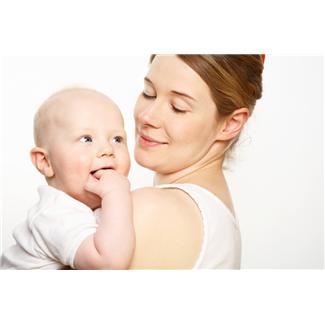Women who undergo elective single embryo transfer as part of in-vitro fertlisation (IVF) are five times more likely to give birth to a healthy baby compared with double embryo transfer, finds a new study published on bmj.com today.
The study recommends that clinicians should, from now on, advise women to have an elective single embryo transfer (eSET) as part of assisted reproduction treatment rather than a double embryo transfer (DET).
Although there has been increasing success in infertility treatments in recent years, there have also been growing concerns about rising rates of multiple pregnancies, which are associated with increased maternal and perinatal illness and death, as well as increased costs to the health service.
A previous review of studies comparing data on eSET versus DET concluded that, although eSET reduced the odds of multiple pregnancies, it halved the odds of live birth per fresh cycle of treatment.
However, there has been, until now, a lack of evidence about the effect of single versus double embryo transfer in different groups of women and on outcomes such as miscarriage, preterm birth and low birth weight.
So an international team of researchers, led by the University of Aberdeen, studied data on 1,367 women from eight eligible trials. A total of 683 and 684 women were randomised to the eSET and DET groups for this analysis.
This showed that in 27% (181 out of 683) of women who underwent a fresh IVF cycle using a single embryo transfer, they gave birth to a healthy baby, compared with 42% (285 out of 683) of women who had a healthy baby following double embryo transfer.
However, the gap between the two types of embryo transfer leading to successful births was much closer when an additional frozen single embryo was transferred at a later date following the first eSET - resulting in a 38% successful birth rate, compared with a 42% birth rate in double embryo transfer cases.
Results showed that the chances of a full-term single birth (over 37 weeks) following single embryo transfer were almost five times higher than those following double embryo transfer.
Single embryo transfer was also seen to reduce the risk of premature births – pregnant women were 87% more likely to avoid a premature birth before 37 weeks, having had a single embryo transfer.
The chance of delivering a baby with low birth weight for single embryo transfer cases was a third of the chance for double embryo transfer cases.
Although adopting a strategy of always giving a women single embryo transfer yielded a lower pregnancy rate than giving them double embryo transfer in a fresh IVF cycle, the difference was almost completely overcome by an additional frozen single embryo transfer cycle.
The researchers conclude: “Our review should be useful in informing decision making regarding the number of embryos to transfer in IVF. Given the opportunity for replacing a single frozen thawed embryo in a subsequent cycle, elective single embryo transfer should thus be the default position.”
In an accompanying editorial, Allan Templeton, Professor of Obstetrics and Gynaecology at the University of Aberdeen asks: why have we not adopted this approach in the UK? He argues that in a commercially competitive environment, “clinicians have been distracted by success rates and do not see the more important healthy outcomes.”
He concludes: “At a time when the beginning of assisted reproduction is being recognised as an outstanding contribution to medical science, practitioners have a responsibility to develop its use wisely. Doctors managing infertile couples are no longer entitled to take risks with the health of the next generation.”


